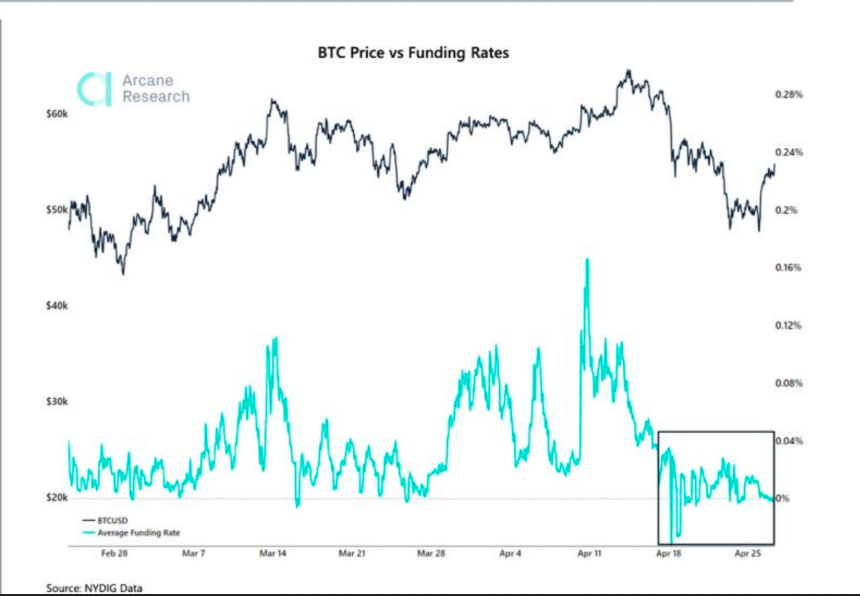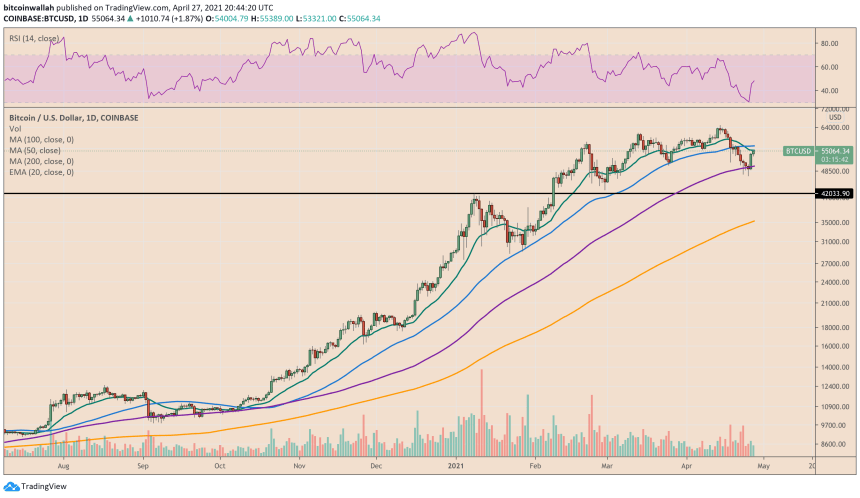Reason to trust

How Our News is Made
Strict editorial policy that focuses on accuracy, relevance, and impartiality
Ad discliamer
Morbi pretium leo et nisl aliquam mollis. Quisque arcu lorem, ultricies quis pellentesque nec, ullamcorper eu odio.
The funding rates for Bitcoin have recovered from their September 2020 lows, insomuch that they are now trending sideways since April 18.
Many analysts watch Bitcoin Funding Rates because of their potential to predict the upcoming trends in the flagship cryptocurrency market. In retrospect, they signify periodic payments that traders with open short positions pay to the ones with open long positions, all based on the difference between the perpetual contract market and spot price.
A positive funding rate reflects traders’ bullish bias, showing that long traders pay short traders in a market that appears heavily skewed to the upside. Similarly, when the Bitcoin funding rate becomes negative, it implies that traders are bearish, which means short traders pay long traders.
But…
…based on Arcane Research’s report, the funding rates have gone neutral for more than a week. The research and analysis firm added that the short-term bias conflict between bears and bulls would eventually favor the latter, given the Bitcoin price’s incredible recovery at the beginning of this week.
The BTC/USD exchange rate dropped by more than 27 percent after establishing its record high of $64,899 on April 14. It was only until this Monday that the pair showed any signs of recovery. Its rebound went as far as 12 percent on a week-to-date timeframe, coinciding with its neutralizing funding rates.
“The fact that the funding rate has remained neutral amid Bitcoin’s strong recovery yesterday is a healthy sign going forward,” wrote Arcane Research.

More bullish tailwinds for Bitcoin came from its declining open interest. Arcane Research cited derivatives market data from April 27 session, noting that unsettled BTCUSD contracts reached their lowest levels since March 8. That reflected more cautious sentiment in the derivative market. It also meant that the ongoing Bitcoin price recovery entirely took cues from spot markets.
“It makes the current price action more sustainable,” added Arcane Research.
Part of the reason Arcane Research appeared bullish is the ability of the derivatives market to drive bitcoin prices wildly. Traders typically open highly leveraged trades as they anticipate maximum returns from precarious positions. Nevertheless, when their bets fail, it increases their tendency to sell their real bitcoin assets to cover their margin positions. That overall fuels selling pressure in the market.
What’s Next for Bitcoin?
According to ByBt.com, the bitcoin options contract expiring on April 28 has a majority strike price target near $52,000. That increases the pressure on bulls to protect the market from potential bearish assaults. Should they fail, one can expect a breakdown towards the said lower level.
It also coincides with the 100-day simple moving average, which served as support to the ongoing Bitcoin price rebound.

As of now, the BTC/USD exchange rate is looking to break above its 20-day exponential moving average (20-DMA).
Image by Marcel Langthim from Pixabay



















